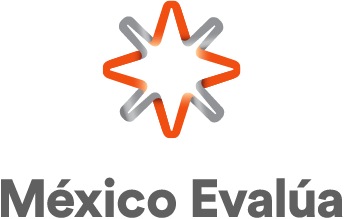Substituting Cofece, IFT and CRE for Inmecob would demolish the capacity and independence of both regulators and economic competition authority
- Disintegrating fully autonomous bodies and eliminating controls to ensure their independence, would increase political influence in decision-making and risk compliance with the USMCA requirement of having an independent telecommunications regulatory body.
- Senator Monreal’s initiative to create Inmecob must be discussed taking into account the opinion of social representatives and specialists in the sector. An effective regulatory policy that seeks to promote productivity and encourage innovation must be a national priority with a rationale centered in consumer benefit and effective social welfare.
On June 10, 2020, Senator Ricardo Monreal, member of the Parliamentary Group of MORENA, presented to the Permanent Commission of the Congress an initiative to reform articles 27 and 28 of the Mexican Constitution . With it, the modifications seek to create the National Institute of Markets and Competition for Well-being “Inmecob”, as an autonomous constitutional body that would integrate, under an austerity argument, the following bodies: Federal Telecommunications Institute (IFT), the Federal Commission of Economic Competition (Cofece) and the Energy Regulatory Commission (CRE).
At México Evalúa, we consider this initiative would affect the development of the markets, by hindering all certainty and confidence in the activities of regulation and protection of the State’s economic competition. The objectives and structure of said current regulatory bodies and the competition authority would be substantially modified to the detriment of the specialization they require. If approved, the initiative would directly impact negatively investment and the Mexicans’ well-being for the following reasons:
1. The initiative does not recognize the relevance of current competition authority as a reviewer of the regulatory policy
By merging the competition authority with sectoral regulators into a single body, the initiative weakens the role of the competition authority as a fundamental check and balance in the design and implementation of regulatory processes as well as throughout the monitoring stages of results. This function is currently crucial as it contributes to improve institutional capacity, performance of regulatory authorities, and the consolidation process towards a regulatory policy that may foster economic competition at all government levels.
2. Loss of specialization and greater uncertainty for the proper functioning of markets
The initiative foresees a reduction in the number of Commissioners and staff to fulfill the functions of the Cofece, the CRE and the IFT. This would cause alarming bottlenecks and delays in resolutions, which could impact costs and investment opportunities in markets. There is concern that, since these are such technical activities, they cannot be adequately regulated by a reduced staff whose expertise should cover different matters.
Although the initiative takes as its main reference the Spanish reform that constituted the National Commission of Markets and Competition (CNMC), we consider that this is not applicable because of Inmecob’s differentiated schemes for each type of regulator proposed -without any justification or reason- that increase uncertainty and incoherence of the model, for example: i) The National Hydrocarbons Commission (CNH), the economic regulator of hydrocarbons, is excluded; ii) It does not include sectoral regulators such as the railways, aviation, among others, and iii) A model of asymmetric regulation is described only for the case of telecommunications and not for the electricity sector.
3. Loss of independence autonomous constitutional bodies
Disintegrating bodies with full autonomy and restarting a process of selection of commissioners, eliminating controls to ensure their independence, would increase political influence in decision-making.
The initiative contemplates eliminating the knowledge test and the process before the Evaluation Committee – made up of the heads of Banxico and INEGI – with which the best qualified candidates were chosen according to their technical knowledge. In addition, it proposes that directors be appointed by the federal executive on the proposal of the Senate, without requiring ratification by the legislature, as currently established in article 76 of the Mexican Constitution.
This proposal is not consistent with the requirement of Chapter 18 of the USMCA of having an independent telecommunications regulatory body, so if approved in the current terms, the initiative jeopardises compliance with the treaty.
The initiative presents as its main motivation the search of savings to the treasury in the context of the Covid-19 pandemic, but this is questionable: such ‘savings’, equivalent to approximately USD 22 million (500 million pesos) per year, that the initiative estimates do not compensate for the institutional weakening of current regulators and the competition authority.
According to the Cofece, the economic benefit of its rulings and settlements against absolute monopolistic practices and concentrations in 2018 alone amounted to equivalent 260 million USD (5,952,912,034 pesos): 9,631 times the budget allocated to this body. For each peso assigned to the Cofece, a benefit to Mexican society of approximately $12.7 pesos in 2017 and $9.6 pesos in 2018 was generated. For its part the IFT noted that its public expenditure in 2019 represents one tenth of what it has collected in carrying out its functions.
The importance of the State’s regulatory function derives from the many and diverse ways in which regulation affects the lives of citizens, and is therefore fundamental to the proper functioning of the economy and society. The Mexican State should establish as a priority the construction of an effective regulatory policy and the promotion of productivity and innovation, always centered in the consumer and social welfare. This requires a policy that looks forward to strengthening, and not weakening, those institutions responsible for implementing sectoral regulation and the defense of economic competition.





